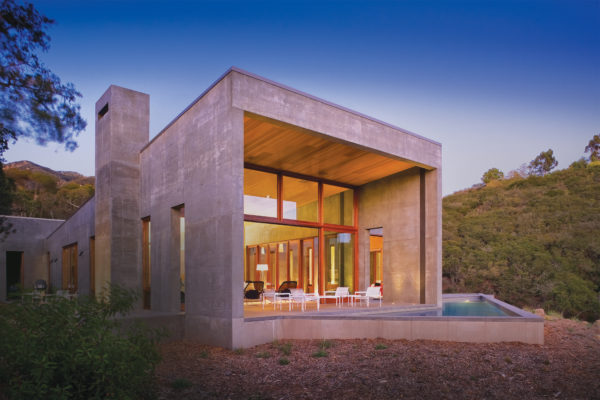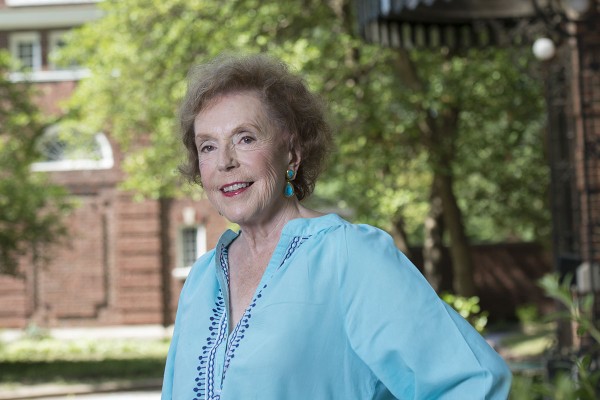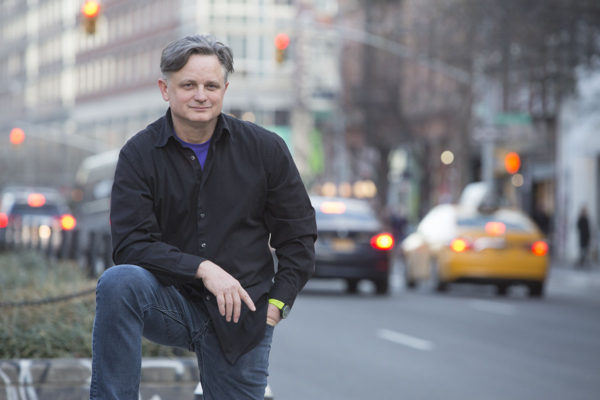In 1967, New York City forced nearly 2,000 low-income families out of a 20-acre area on the Lower East Side to make way for the Seward Park Extension Urban Renewal Area (SPURA), a $50 million project that promised new, affordable housing units that the displaced families could move back into. Of the six planned buildings, only two were built, and the area has languished ever since.
But Washington University alumnus Paul Pariser, AB ’76, is helping make good on that half-century-old promise, taking the blighted area of Manhattan in a chic — and affordable — new direction.
Pariser is the co-chief executive officer and co-founder of Taconic Investment Partners, a real estate development and investment firm based in New York City. Since its creation in 1997, Taconic has acquired, developed and repositioned more than 12 million square feet of commercial and residential space in New York.
“Taconic strives for, in the ideal, extraordinary vision and creativity,” Pariser says, “and to create returns that are excellent for our investors and to service the community in which we operate.”
Essex Crossing, the $1.5 billion development being built on the old SPURA site, is one of Taconic’s biggest and most exciting projects. The development will bring hundreds of thousands of square feet of office and retail space, as well as 1,000 new apartments. Half of the apartment units planned in the new development will be permanent, affordable housing for lower-income residents and senior citizens.
Pariser brings nearly 40 years of experience in the real estate development business to the Essex Crossing project. He graduated from Washington University with a biology degree, which might seem unusual for someone who ended up in real estate development.
“My actual major was in an area called ethology, which is animal behavior, and I thought it was a great stepping stone into New York real estate,” he jokes. “When I was younger, I truly didn’t know what I was going to do for a living. I didn’t go to college with a specific plan. I went with a view that I was going to have fun and learn and mature.”
He found his calling as an MBA student at Columbia University. For an assignment in one of his classes, Pariser and a friend invested in a plot of land in Lake Placid, New York, with the hope of turning it into housing for the 1980 Winter Olympics.
“I certainly did well in the class, but moreover, I wound up learning a lot. The investment exposed me to real estate and got me excited by real estate,” Pariser says.
He joined real estate investment management company Jones Lang Wooten in 1978 and later served as the president and CEO of Balfour Holdings, which he helped sell in 1997. From there, he created Taconic.
“Paul brings experience and know-how to the team. He digs in and focuses while keeping a global perspective,” says Sandy Loewentheil, AB ’76, the chairman of L+M Development Partners, a collaborator on the Essex Crossing project.
Both Loewentheil and Pariser serve on WashU’s Arts & Sciences National Council, an advisory committee to the dean. The two met as students during a regular off-campus basketball game and have stayed in touch ever since.
Essex Crossing is the first project the two have worked on together as real estate developers. Taconic and L+M, as well as BFC Partners, won the bid to develop the area in 2013.
“Paul has been a pleasure to partner with. Our firms and partners have meshed really nicely. I believe more collaborations will follow,” Loewentheil says.
In the meantime, Essex Crossing will be home to an expanded Essex Street Market, a public food market. And Market Line — the building that will house the market — will become one of the world’s greatest public markets, at 150,000 square feet, when it opens in 2018.
The full development, when complete in 2024, will also include a movie theater, bowling alley, medical center and even a photography museum.



